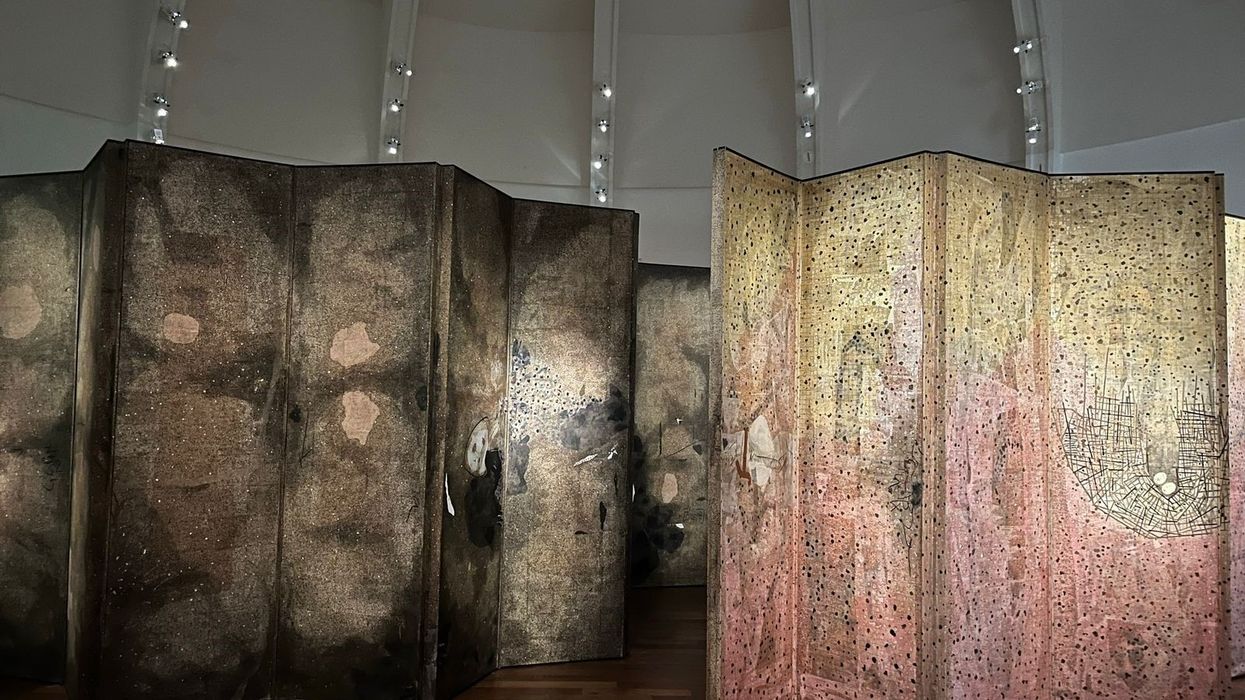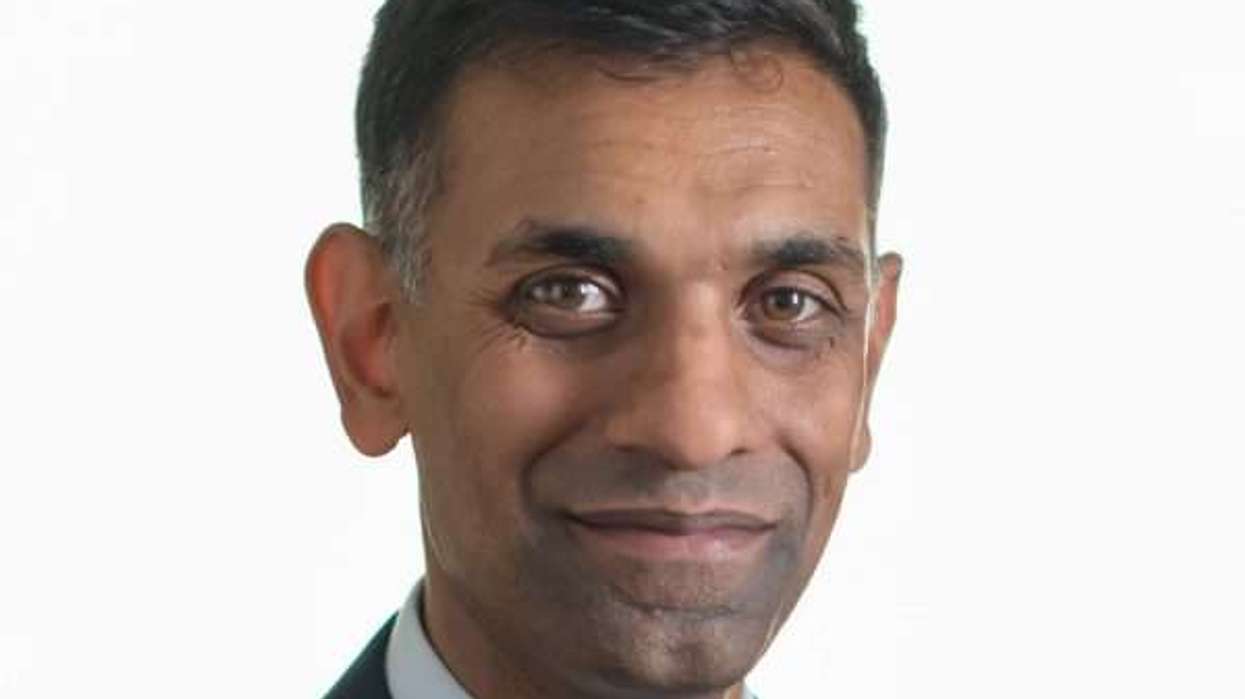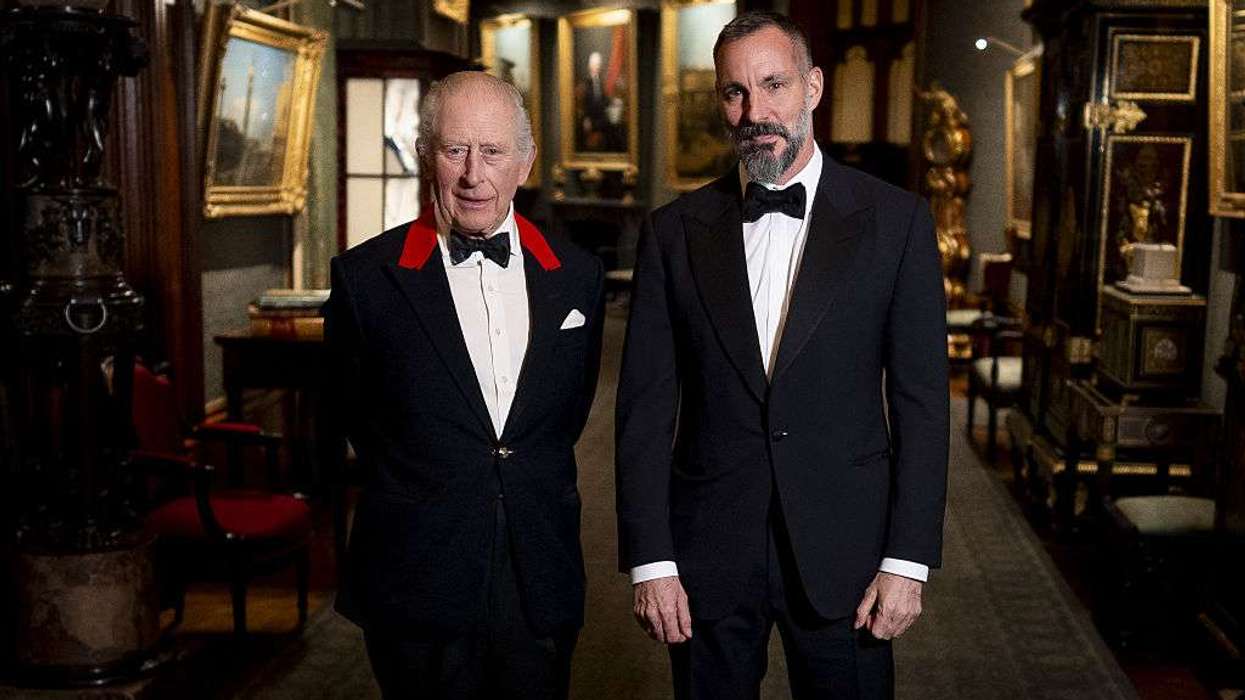AN UNUSUAL exhibition by Manish Pushkale, an Indian artist who has been inspired by a “bird whisperer” in the remote Andaman Islands, opened last week in Paris.
The exhibition, in a series called Carte Blanche, will run at the Guimet National Museum of Asian Arts until spring next year.
The museum, which has one of the largest collections of Asian art outside of Asia, said Pushkale’s work has been “inspired by a true story: the extinction of the aka-bo language, also known as ‘the language of birds’, spoken by the Bo tribe in the Andaman islands, India.
It added: “The installation is designed as a voyage of discovery, through writing, archaeology and fleeting memories, reminding us of the difficulties of preserving intangible heritage and of a culture’s vulnerability in the face of rapid global change.”
The exhibition, curated by Claire Bettilini, has been done in partnership with Reena and Abhijit Lath, who run Akar Prakar, an arts organisation in India. It is supported by the Advitya & Kanika Dewan Foundation and ITM-University Gwalior.
The museum explained: “After celebrating the artist (Sayed Haider) Raza’s work in spring 2023, this 18th Carte Blanche reaffirms the importance that the Guimet Museum attaches to Indian artists and contemporary art.
“For the rotunda on the 4th floor, Pushkale has created a work representing the inexorable disappearance of the great Andamanese indigenous people through natural disasters, tourism and globalisation.
“With a cocoon-like installation, the artist invites the visitor to step into a mysterious and forgotten sanctuary. Inside, we discover a visual and abstract representation of the Bo tribe’s now extinct ‘language of birds’, whose last speaker, Boa Senior, passed away in 2010.
“The journey continues through a fragile architectural labyrinth of screens measuring three metres high and nineteen metres wide.”
It added: “The paper used by the artist is natural, irregular, illtreated, repaired, holey and coated with several layers. It bears cracks, has black and red tones from basalt stone and ochre, and is covered in mineral pigments from rocks taken from different geological layers in the Andamans. While a lattice pattern punctuated with marks, bubbles and spots creates the imaginary geographical structure of a forgotten distant civilisation, a group of successive and regular black and white dots evoke a binary language or musical notes.
“Elsewhere, open or closed lines symbolise the fundamental questions faced by the native populations of the Andaman islands: should they open up to the world or isolate themselves?
“There are hidden birds singing within the installation, like a figurative substitution for the absent voice of Boa Senior and her ‘song of birds’, which has sunk into oblivion. On the external wall, two eggs sit in a nest of paper twigs, evoking the hope of renewal or the reincarnation of the Bo tribe.”
Pushkale, born in 1973, is a selftaught artist who, after studies in geology and archaeology, enrolled in the Bharat Bhavan multi-arts complex in Bhopal in the central Indian state of Madhya Pradesh.
According to the museum, “it was in this fertile, intellectual and creative environment that he honed his artistic style and sensibility as an abstract artist. He is deeply influenced by the great Indian artists, such as Raza (1922- 2016), whose mandalas were exhibited at the Guimet Museum as part of a retrospective of the artist’s career at the Pompidou Centre in spring 2023.
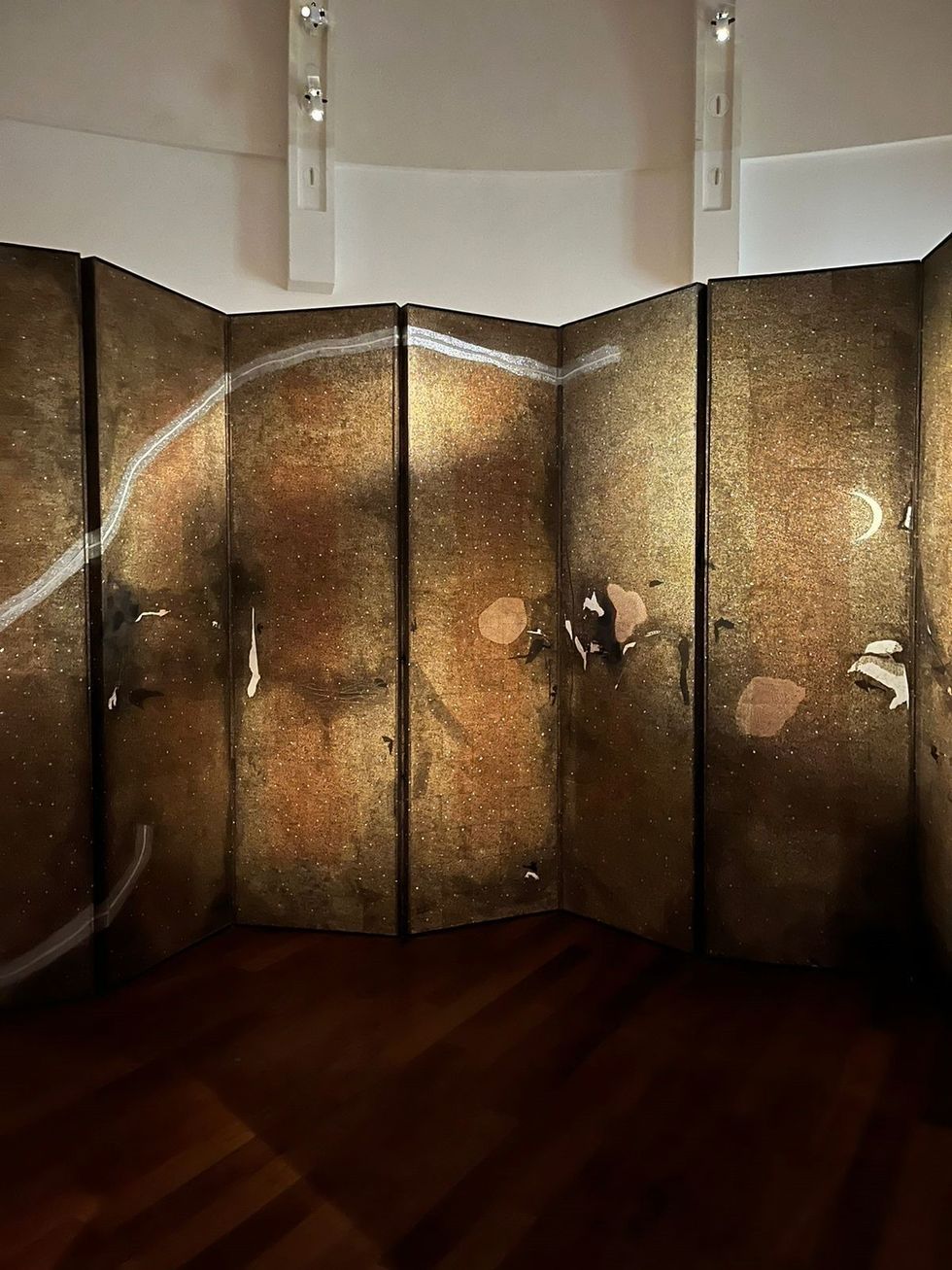
“Pushkale is also a member of the Raza Foundation in New Delhi, where he lives and works as an independent artist. His works have been widely exhibited in India and internationally in collective and personal exhibitions. His calm and contemplative canvases dwell upon the ebb and flow of civilisation through the themes of genesis, progress and inevitable change.”
Pushkale has himself told of vanishing cultures and languages: “The language through which the tribal people continue to live, a language which exists in villages, which exists in towns, exists everywhere. I travelled with this work to various places in Madhya Pradesh.
I have worked on the grounds of archaeological sites, in locations of the pre-historic caves. I have used water, charcoal, pigments and many materials naturally available on those sites. This work hhas not only given me a new direction and a new geography, but I have also pushed my practice from the controlled studio environment to the outdoors in the lap of mother nature.”
He recalled: “I heard one story from the great linguist Ganesh Devy about a communication system in the Bo tribes of Andaman (islands). The story is about the lady, the senior Boa. She was able to converse with the sparrows and she did that for long years.
“With her death, this unique communication system between humans and the birds went extinct. When I started working on this story with innumerable drawings in 2020, I failed many a time. I was struggling to finds visuals to communicate this loss.
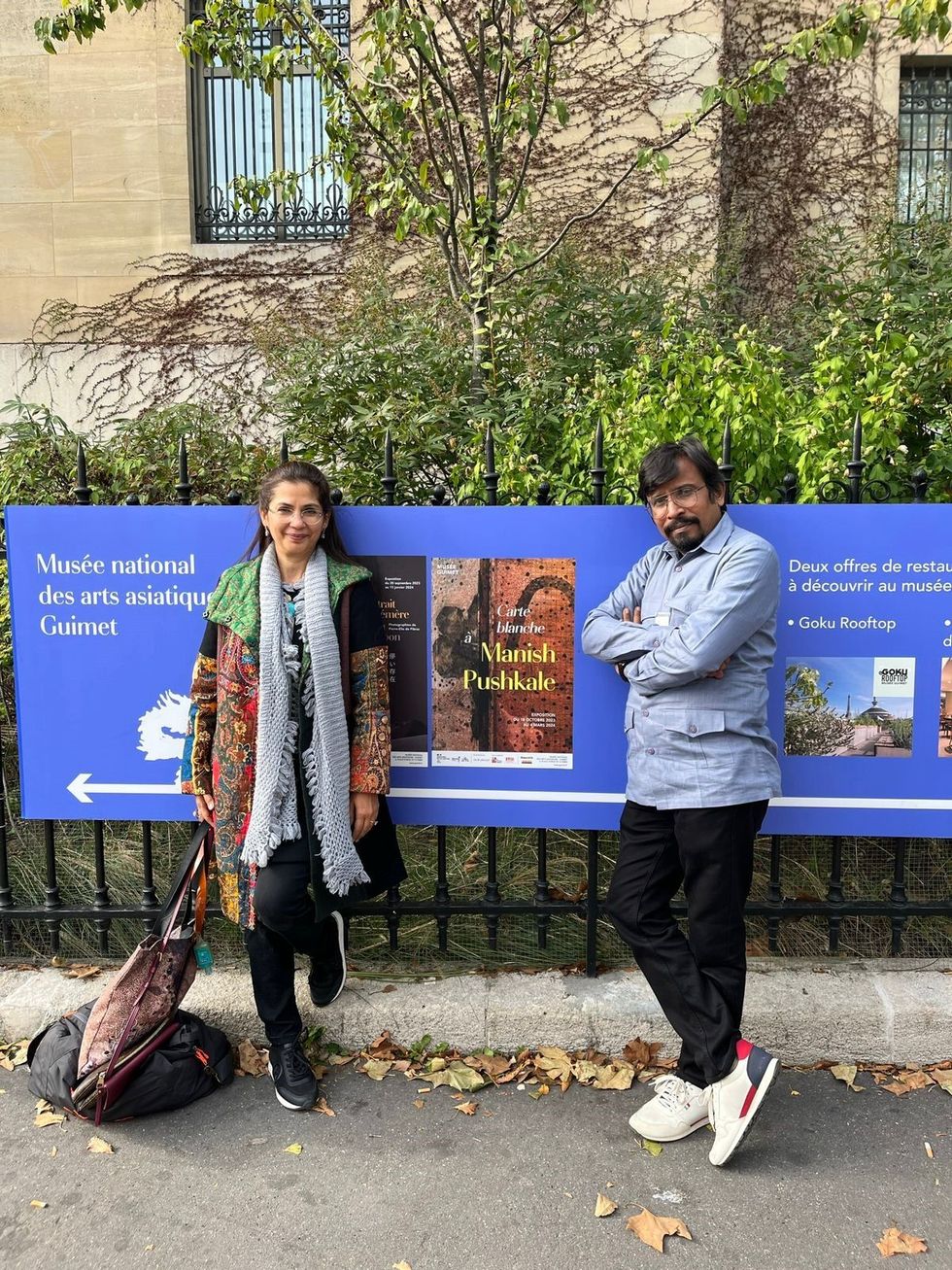
“Slowly, the image started to appear to draw itself, shape itself in dimensions I never imagined. The fragments and details we see in the work, the aggression, the darkness, a kind of dryness of the land, the distant moon, are all fonts that contribute towards the ultimate image of that huge loss. Living in evolved times, do we register or realise the loss of this collective memory that we represent?”
Manish Pushkale’s exhibition is at the Guimet National Museum of Asian Arts, 6 Pl. d’Iéna, 75116 Paris, until March 4, 2024.
